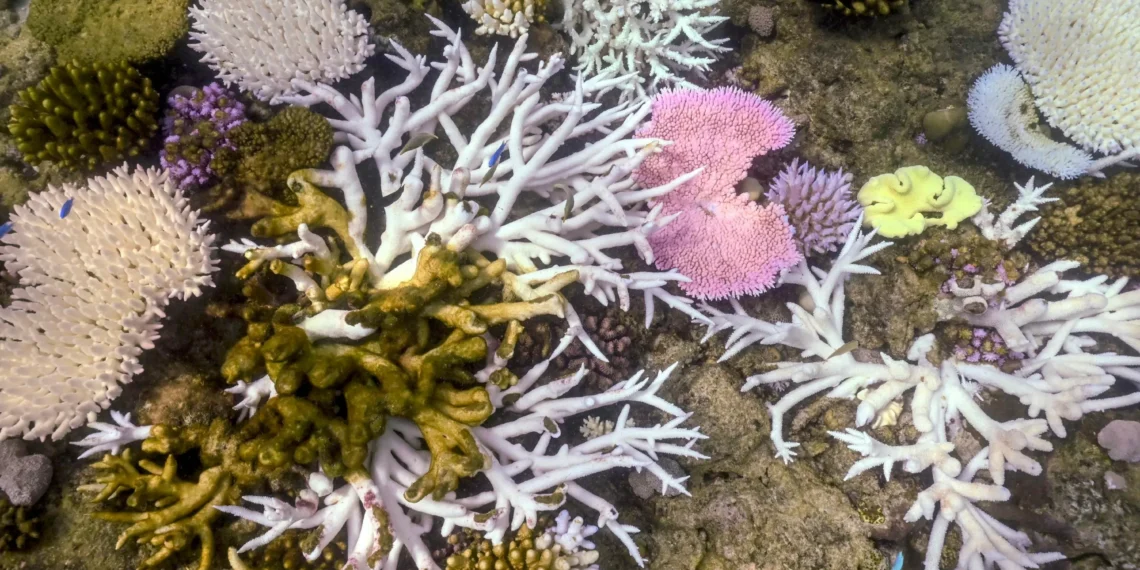Water temperatures in and around Australia’s Great Barrier Reef have risen to their warmest in 400 years over the past decade, placing the world’s largest reef under threat. This alarming trend has been attributed to the effects of climate change, and it is crucial that we take immediate action to protect this natural wonder.
The Great Barrier Reef, located off the coast of Queensland, is home to thousands of marine species and is a major tourist attraction, generating billions of dollars for the Australian economy. However, the recent increase in water temperatures has caused widespread bleaching of the coral, leading to its death and destruction of the delicate ecosystem.
According to a study published in the journal Nature Communications, the average water temperature in the Great Barrier Reef has increased by 0.4 degrees Celsius since 1850. This may not seem like a significant increase, but it has had a profound impact on the reef’s health. The study also found that the current water temperatures are the warmest in the past 400 years, which is a cause for concern.
The rise in water temperatures is a direct result of global warming, which is caused by the emission of greenhouse gases. The burning of fossil fuels, deforestation, and other human activities have led to an increase in the concentration of these gases in the atmosphere, trapping heat and causing the Earth’s temperature to rise. As a result, our oceans are also absorbing more heat, leading to the rise in water temperatures.
The consequences of this warming trend are devastating for the Great Barrier Reef. The coral, which is the backbone of the ecosystem, is extremely sensitive to changes in water temperature. When the water gets too warm, the coral expels the algae living in its tissues, causing it to turn white or “bleach.” If the water temperature does not return to normal soon, the coral will eventually die, leaving behind a barren and lifeless reef.
The Great Barrier Reef is not only home to coral, but it is also a haven for thousands of marine species, including fish, sea turtles, and sharks. These creatures rely on the coral for food and shelter, and without it, their survival is at risk. If the reef continues to suffer, it will have a ripple effect on the entire ocean ecosystem, ultimately affecting the livelihoods of millions of people who depend on it.
The Australian government has taken steps to address this issue and has committed to reducing its greenhouse gas emissions. However, more needs to be done on a global scale to combat climate change and protect the Great Barrier Reef. It is not just the responsibility of one country; it is a global issue that requires a collective effort.
Individual actions can also make a difference in preserving the Great Barrier Reef. We can reduce our carbon footprint by using renewable energy sources, conserving energy, and reducing our use of single-use plastics. These small changes can have a significant impact on reducing greenhouse gas emissions and protecting our planet.
The Australian government has also implemented measures to protect the Great Barrier Reef, such as reducing the amount of agricultural runoff and improving water quality. These efforts are commendable, but more needs to be done to address the root cause of the problem – climate change.
The Great Barrier Reef is a national treasure and a source of pride for all Australians. It is also a vital part of our planet’s biodiversity and must be protected for future generations to enjoy. We cannot afford to sit back and watch as this natural wonder is destroyed by our actions. It is time for us to take responsibility and work towards a sustainable future for our planet.
In conclusion, the recent rise in water temperatures in and around the Great Barrier Reef is a cause for concern. It is a wake-up call for us to take immediate action to combat climate change and protect this natural wonder. We must work together, as individuals and as a global community, to reduce our carbon footprint and preserve the Great Barrier Reef for generations to come. Let us not be the generation that stood by and watched as the world’s largest reef was destroyed. Let us be the generation that took action and saved it.







